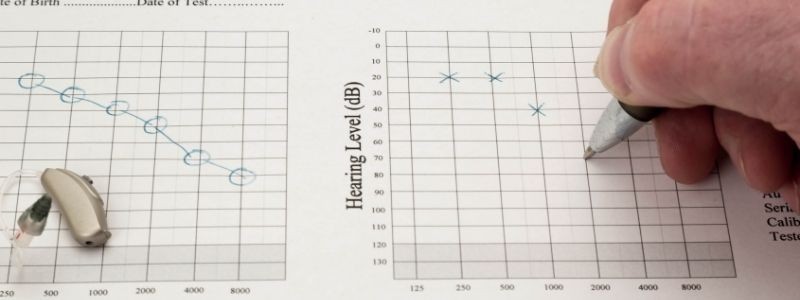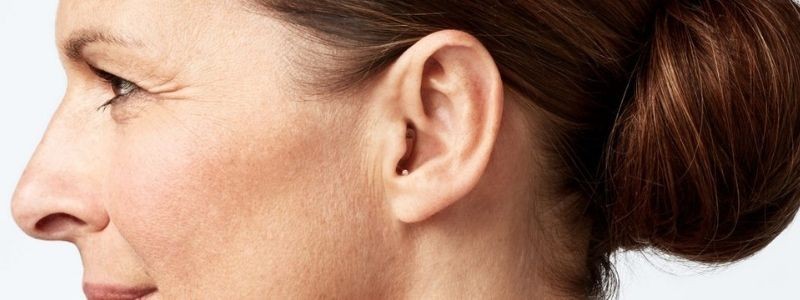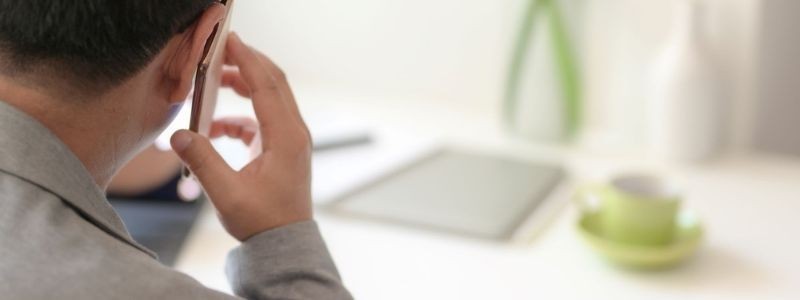Audiology Services
During & After Coronavirus (COVID-19)
| July 2021 Update: All services returning to normal as of 19th July 2021. We've kept this article available for customers to access as a reference of our protocols during Coronavirus.
16/07/2021 Guidance Update: All areas and audiology services remain open for business
"All audiology healthcare appointments continue to remain essential medical visits and abide by the existing government and industry protocols. Following guidance from our industry, we are ensuring that we are practicing in a COVID secure environment" Paul Harrison - Director of Hearing Aid UK
COVID & Audiology Today
Coronavirus has been in the UK for more than a year. With each week that goes by, we understand this virus more. With an effective vaccination program in place and the percentage of people who've had their second dose on the rise - infections contracted are starting to fall. However, we are also aware of the virus's unpredictability and the impact it has on all age groups - especially the older generation.
With this in mind, please note that even if you've had your first or second dose, you will still need to comply with all the audiology guidelines in clinic or in your own home.
Our Industry's Guidelines
The information below reflects our industry's guidance, as we continue to operate. Our aim here is to provide you with the correct information on how we have adapted our services in both our clinics and home visits. We are working entirely within the current audiology government guidelines and receiving joint support and advice from the UK's audiology professional bodies.
This means we are constantly being updated on new audiology guidelines, procedures and restrictions so we can operate safe hearing services for our audiologists and patients. We want to reassure our customers that we and our audiologists are doing everything we can to prevent the risk of transmission professionally and safely.
Future Restrictions
If areas of the UK go under lockdown, firebreak or tiered restrictions. Don't worry, your audiologist will advise you on the new protocol. You may also be given a letter, email or text confirmation of your audiology appointment, in the event you need to show your travel need.
Our audiology procedures are in line with the NHS, recent government guidelines on COVID-19, Infection Prevention Society, our professional audiology bodies and the World Health Organisation (WHO).
It is important to note that this information is not exhaustive. You can download the latest Joint Guidance PDF below or if you have any questions regarding any of the following content - Call us free on 0800 567 7621
Here are the main hearing healthcare services available to you:
- All audiology services are offered using risk assessments.
- In-person appointments are offered to all patients.
- Where needed remote assistance will be given.
- Hearing healthcare in clinic and at home is available using risk assessments and current guidelines. Audiology is labelled as a "low-risk pathway".
What will we be talking about in this article?
- The new normal - Including social distancing, PPE and sanitising
- Who can and who can't be seen?
- What is PPE?
- Remote care
- Coronavirus screening questions
- What to expect with a clinic appointment
- What to expect with a home visit appointment
- Where has this guidance come from?
- Audiology and ontology services during Covid-19 PDF download
- What to do next
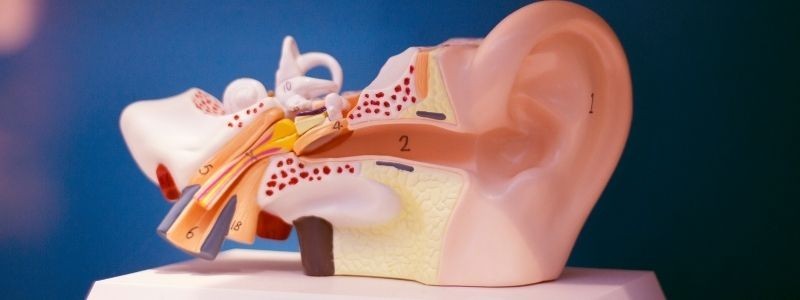
The New Normal
For the foreseeable future, here are a few of the precautions we have put in place to make this possible in both our clinics and home visiting. However, please refer to the unique precautions below for both in-clinic appointments and home visiting services in more depth.
- PPE: Hand and respiratory hygiene aseptic techniques - Including the "catch it and bin" it safely strategy.
- Sanitising and sterilising of equipment, furniture, handles etc. between the appointments of every customer.
- Regular risk assessments.
- Each patient will be asked screening questions via telephone before their scheduled appointment, either in-clinic or at home. This is to ensure that we do not come into contact with any patients who are symptomatic of COVID-19.
- Social distancing wherever possible.
- Reducing appointment times.
- Adapting the equipment used and keeping equipment used to a minimum, removing any unnecessary procedures such as REMs.
- Regular staff training about new procedures and guidelines.
- Ensuring all rooms within the clinic or well ventilated.
What is PPE?
In this article we will be referring to PPE, but what actually is it? PPE is an abbreviation of Personal Protective Equipment, which is worn to protect the wearer from injury or infection. In the current Coronavirus pandemic, and for our audiologists, this would be a face mask, gloves, and if wax removal is to be done, also an apron. This reduces the risk of transmission and provides the safest systems of working for face-to-face consultations.
The audiologist will also ask you to wear a face mask during your appointment (unless you can't for medical reasons), especially when treatment or an examination has to be done within a 2m distance. All PPE worn by the audiologist will be put on and removed properly. Disposing of the PPE will follow the clinical waste guidelines and only be used once.
Who can & who can't be seen?
During the Coronavirus (COVID-19) we cannot see you, either in the clinic or at home, if you or another member of your household has any symptoms of the virus. We can, however, book audiology appointments for those who are still classed as high-risk or would rather have an at-home service. In these circumstances, we will offer you a home visit from your local audiologist.
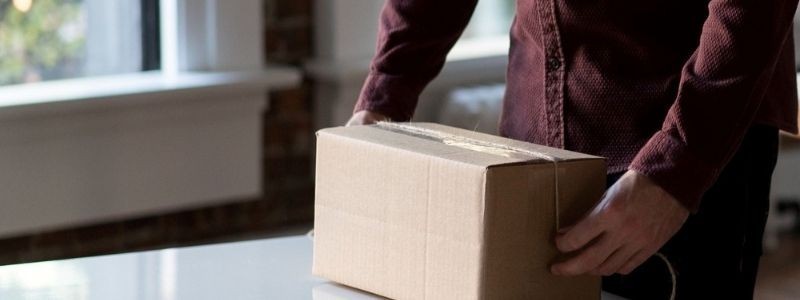
Remote Care
Whilst we've been able to see people in person for quite some time, we still understand that some people would rather book an at-home appointment or get remote assistance. If remote service is not suitable for your needs then we will book you in for an in-person visit.
The remote services we offer are:
- Hearing aid replacement/upgrade for existing device wearers. *
- Pre-programmed hearing aids and delivery service. *
- Adjustments.
- Repair drop off service.
- Aftercare support.
- Tinnitus support.
- Follow-up assessments.
Customer Notice About Remote Hearing Aid Programming
For existing hearing aid wearers with an audiogram under two years old, we are able to perform a telephone consultation to assess your needs and then send the hearing aids out to you, programmed to your hearing loss.
For new hearing aid wearers or those without an audiogram under two years old then we may still be able to help. Provided you have a smart device such as an iPad or iPhone then for Phonak, Oticon, Signia and Widex hearing aids, we are able to dispatch the hearing aids to you by post and then perform a hearing test through the hearing aids to set them up for you remotely. This will not be suitable for all and we will assess your eligibility by telephone consultation.
A quick, but not ideal solution
This is not an ideal situation and the hearing aids will not perform as well as if they had been set up in person by one of our audiologists, however, these by-post fittings will be a temporary measure only until we are able to see you in person again, at which point you will be tested and fitted again and everything will be done to our usual high standard.
Coronavirus Screening Questions
Please refer to the following screening questions, advised by the government, that you will be asked before your scheduled appointment via telephone. This will help keep us from coming into contact with those symptomatic with COVID-19. If you answer yes to any of the following you will be advised to self-isolate and look at the NHS website for guidance. Once your symptoms have ceased you can contact your audiologist to revisit your audiological needs.
- Do you or anyone else in your household have Coronavirus?
- Do you have a new or continuous cough?
- Do you have a high temperature of 37.8 degrees or over?
- Does anyone in your household have a new or continuous cough or high temperature?
- Do you have a loss or changed sense of normal smell or taste?
- Have you or a member of your household or bubble have had to isolate due to travel or due to test or trace notice.
What to expect with a clinic appointment
Before Audiology Appointment
- Your audiologist will contact you via telephone to ask you screening questions. These are designed to distinguish if you have Coronavirus symptoms yourself or other people in your household.
- Once your screening is complete and it is safe to deliver hearing healthcare services to you - your audiologist will go through what to expect from your in-clinic appointment. The changes, the precautions and why. This is so you feel more confident in the measures taken and that your appointment runs as smoothly and safely as possible.
- They may ask you to make a note of any questions you may have in regards to your hearing before your appointment, which may help reduce appointment times.
- You will be advised that it should be only yourself who attends the appointment. If this is not possible, a member of your household can assist you - but they need to adhere to social distancing and they may have to wear a face mask during the appointment.
- You will be asked to be on time for your appointment, to reduce the risk of overlapping and multiple patients accumulating in the waiting room.
- All waiting room chairs will be 2m apart and where possible, marked on the floor to show this safe distance.
- All social waiting areas and reception areas will be regularly cleaned and sanitised throughout the day.
- There will be a buffer time for all the equipment and furniture to be cleaned and sanitised after each patient.
- There will also be regular risk assessments of the practice, PPE and operations.
- There will be a visible hand sanitising station for your use before your appointment.
During Audiology Appointment
- Upon arrival, you will be asked your screening questions again to check that you are still safe to attend your appointment.
- Hands will be washed and sanitised consistently before, during and after your appointment by the audiologist.
- Wherever possible, the audiologist will remain at a safe 2m distance.
- PPE may be used at all times, but will always be worn when being within 2m is necessary. Be prepared to be asked to wear a face mask by the audiologist.
- All close patient contact procedures will be done consecutively using PPE, so it is all done at the same time and reduces exposure.
- Wherever possible, the equipment used will be adapted to help maintain a safe distance.
- Equipment will be cleaned and sterilised after every appointment.
- Equipment that is not necessary for the appointment will not be used.
- As normal, patient records will be written, filed and maintained as normal. There will be additional information on how the appointment was carried out, what procedures and equipment were used and what hearing healthcare was advised during the appointment. Due to COVID-19 we need to ensure that everything is recorded and the appointment was operated safely and within the guidelines stated by the government.
- All PPE worn will be put on and removed properly. Disposing of the PPE will follow the clinical waste guidelines and only ever used once.
- There will be a visible hand sanitising station for your use after your appointment.

What to expect with a home visit
Before Home Visit Appointment
Similarly to in-clinic appointments:
- Your audiologist will contact you via telephone to ask you screening questions. These are designed to distinguish if you have Coronavirus symptoms yourself or other people in your household.
- Once your screening is complete and it is then appropriate to deliver hearing healthcare services to you - your audiologist will go through what to expect from your home visiting appointment. The changes, the precautions and why. This is so you feel more confident in the measures taken and that your appointment runs as smoothly and safely as possible.
- The audiologist may ask you to make a note of any questions you may have in regards to your hearing before your appointment, which may help reduce appointment times.
- A PPE and procedure risk assessment will be carried out before every home visit attended.
- All equipment will be cleaned and sterilised before each patient.
- You will be asked to send confirmation that you agree to the home visit and that all family members are aware that the appointment is taking place.
- You will be advised that no one else is present in the room at your appointment, but if you need assistance then every effort must be made to ensure safe distancing and PPE must be worn.
- If you are being attended to at a residential home, then the management of the facility should be informed and in agreement.
- All preparation for the appointment will be done beforehand to reduce the time spent at the home visit.
During Home Visit Appointment
- You will be asked screening questions again to check that you are still safe to be visited.
- Hands will be washed and sanitised before your appointment and sanitised at regular intervals during by the audiologist.
- Wherever possible, the audiologist will remain at a safe 2m distance.
- PPE will be used at all times, especially when being within 2m is necessary. Be prepared to be asked to wear a face mask by your audiologist.
- All close patient contact procedures will be done consecutively using PPE - so it is all done at once and reduces exposure.
- The audiology equipment will always be cleaned and sterilised before every at-home appointment.
- Wherever possible, the equipment used will be adapted to help maintain a safe distance.
- As normal, patient records will be written, filed and maintained as normal electronically and prepared before the home visit to reduce appointment time. There will be additional information on how the appointment was carried out, what procedures and equipment were used and what hearing healthcare was advised during the appointment. Due to COVID-19, we need to ensure that everything is recorded and the appointment was operated safely and within the guidelines stated by the government.
- Your audiologist will provide you with hand sanitiser if you don't have any available.
- Where possible the room in your house should be well ventilated.
- All PPE worn will be put on and removed properly. Disposing of the PPE will follow the clinical waste guidelines and only ever used once.
Where Has the Guidance Come From?
As mentioned earlier, we have been advised by our audiology professional bodies with a framework for new protocol practices we undertake in clinics and in our home visiting services. They have constructed together with the official public health guidelines from the government, NHS, Infection Prevention Society and the World Health Organisation (WHO) a document for our use.
We are constantly taking a proactive approach to be up to date with the current COVID-19 research and guidance. As said guidance is updated, we will edit this article to reflect this and implement new practice protocols within our nationwide network as and when it is required.
Audiology Services During COVID-19 PDF Download
You can download the official guidance document (June 1st 2021) that defines our procedures by clicking the button below for more information.
What to do next
We hope that this article has helped you feel more confident in the safe healthcare services we can provide and that we can cater for your hearing needs. What's the next step?
Please contact us on 0800 567 7621 if you have any of the following queries:
- Questions about this article.
- You want to find out who your nearest audiologist is.
- You would like advice about your current hearing aids or hearing loss.
- You would like to book an appointment for a hearing test.
- You are having problems with your existing hearing aids and can't be seen by your provider - we can take care of you.
- You have concerns about your hearing and think you may need to upgrade your hearing aids.
- Any other queries about hearing aids or hearing loss - we are here to support and assist you.
What's included in our hearing aid prices?
Our specialist service includes:
Do not spend hundreds of pounds without getting a second opinion from us.
Please call us on 0800 567 7621
 Not only are the prices great, but the service is fantastic! Many thanks to your team.
Not only are the prices great, but the service is fantastic! Many thanks to your team.Ask the Experts
6 Morton Lane
Walkwood
Redditch
Worcestershire
B97 5QA
Latest Launch
When we refer to a product as 'Latest Launch', we mean it is the latest to be released on the market.
New
When we refer to a product as 'New', we mean that the product is the newest hearing aid model on the market.
When we refer to a product as 'Superseded', we mean that there is a newer range available which replaces and improves on this product.
Older Model
When we refer to a product as an 'Older Model', we mean that it is has been superseded by at least two more recent hearing aid ranges.

